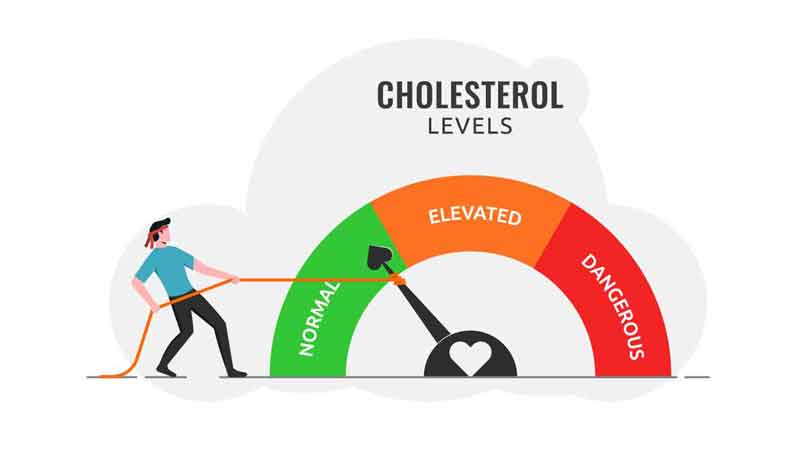Effects of Cholesterol on the Body
Cholesterol is a waxy substance found in all your body’s cells. Your body needs some cholesterol to build healthy cells, but high levels of cholesterol can have negative effects on the body, including an increase in your risk of heart disease.
There are two main types of cholesterol: low-density lipoprotein (LDL) and high-density lipoprotein (HDL). LDL cholesterol is often called “bad” cholesterol because it can build up in your arteries and cause plaque. HDL cholesterol is often called “good” cholesterol because it helps to remove LDL cholesterol from your arteries.
High cholesterol can lead to a condition called atherosclerosis, which is the buildup of plaque in your arteries. This can narrow your arteries and make it harder for blood to flow through them. Over time, atherosclerosis can increase your risk of heart attack, stroke, and other health problems.
There are a few things you can do to lower your cholesterol levels:
- Eat a healthy diet. This includes eating plenty of fruits, vegetables, and whole grains. It also means limiting your intake of saturated and trans fats, which are found in animal products, processed foods, and fried foods.
- Exercise regularly. Aim for at least 30 minutes of moderate-intensity exercise most days of the week.
- Lose weight if you are overweight or obese.
- If you smoke, quit. Smoking can raise your cholesterol levels.
- If you have high cholesterol, your doctor may prescribe medication to help lower your levels.
Here are some of the effects of cholesterol on the body:
- Heart disease: High cholesterol is a major risk factor for heart disease. Heart disease is the leading cause of death for both men and women in the United States.
- Stroke: High cholesterol can also increase your risk of stroke. A stroke occurs when the blood supply to the brain is interrupted.
- Peripheral artery disease: Peripheral artery disease is a condition that affects the blood vessels in your legs and feet. It can cause pain, numbness, and weakness in your legs.
- Gallstones: High cholesterol can increase your risk of developing gallstones. Gallstones are hardened deposits of cholesterol that form in your gallbladder.
- Dementia: Some studies have shown that high cholesterol may be linked to an increased risk of dementia, such as Alzheimer’s disease.
If you are concerned about your cholesterol levels, talk to your provider. They can help you determine your risk and develop a plan to lower your levels if necessary. If you don’t have a primary care provider, give CHC a call today and set up an appointment. We’re here to help!

